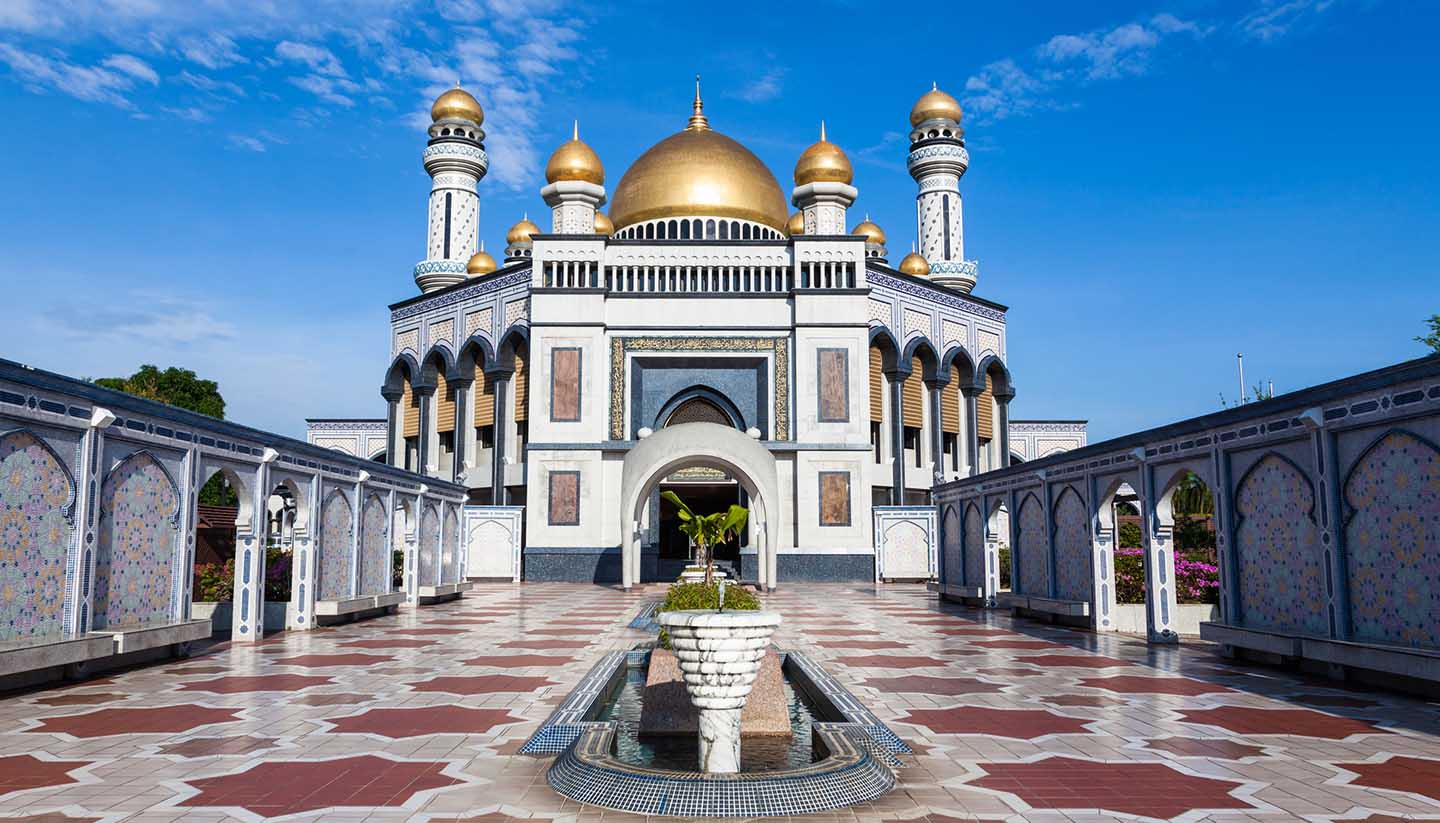Brunei History, Language and Culture
History of Brunei
A tiny nation on the north coast of the island of Borneo, Brunei is separated into two parts by the Lambang district of the Malaysian territory of Sarawak.
The country’s with China and India dates back at least a thousand years before the kingdom of Brunei was founded in the seventh century. Its kings converted to Islam around the 15th century and the Sultanate of Brunei was the region’s dominant force for almost 200 years, winning a brief war with Spain before slipping into decline. The Bruneian Empire crumbled with the loss of much of its territory to the White Rajahs – a dynastic monarchy of the English Brooke family – of Sarawak in the 19th century and Brunei became a British protectorate in 1888.
Oil, discovered in the Seria area in the 1920s, changed Brunei forever. It was black gold that helped fuel Japanese interest in Borneo during World War 2 and just eight days after the attack on Pearl Harbor, Japan landed 10,000 troops on Brunei and occupied the country until June 1945 when Australian forces retook Brunei town.
Returned to British governance, a new constitution was written in 1959 introducing self-government and in the early 1960s oil – together with the failed Brunei Revolt of December 1962 – made it economically advantageous for the country to remain outside the Federation of Malaysia.
Sultan Haji Hassanal Bolkiah, the country’s current absolute ruler and one of the world’s richest people, became Brunei's 29th sultan in 1967. He rules under a national philosophy known as Malay Islamic Monarchy, which promotes Islamic traditions and values and loyalty to the sultan. The activities of political parties are severely restricted.
Brunei became self-governing except in foreign affairs and defence in 1971 and became fully independent from Britain in 1984. The country maintains close military, economic and cultural ties with the UK.
In 2013 Sultan Hassanal Bolkiah declared his intention to impose Sharia Law on the nation’s Muslims, about two-thirds of the population, making Brunei the first and only country in the region to incorporate Sharia Law in its penal code.
Did you know?
Brunei is the first country in Asia to ban shark finning.
Under Sharia Law, Christmas decorations are banned in public places but local and foreign Christians are still allowed to celebrate Christmas.
Brunei has technically been under martial law since the Brunei Revolt of 1962 and Sultan Hassanal Bolkiah also serves as the country’s Prime Minister, Finance Minister and Defence Minister.
Brunei Culture
Religion in Brunei
Islam is the official state religion of Brunei, and about two-thirds of Bruneians are Muslims. Buddhists (mainly Chinese) make up about 13% of Brunei's population; Christians are 10%.
Social Conventions in Brunei
Visitors should dress modestly. Shoes must be removed when entering mosques and Muslim homes. Some Bruneians do not shake hands with people of the opposite sex. It is impolite to point with the index finger (the right thumb should be used instead). Food may be served without cutlery: eat using the right hand only. It is widely regarded as discourteous to refuse refreshments or to eat in public during Ramadan.
Visitors should note that there are severe penalties for all drug offences, and that the legal system in Brunei is partly based on Shariah law and can, occasionally, apply to non-Muslims, including visitors. Dress is informal except for special occasions. Women should ensure that their head, knees and arms are covered.
Language in Brunei
Malay is the official language. English is widely used and Chinese dialects are also spoken.


